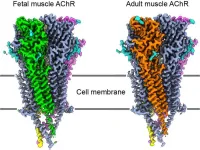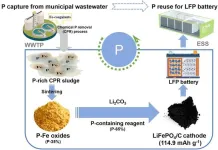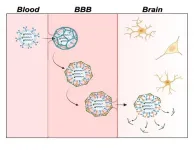(Press-News.org) BOSTON– A cross-representative survey of adults in the United States showed decreasing levels of trust in physicians and hospitals during the COVID-19 pandemic—and the lower the trust, the less likely an individual was to get vaccinated against SARS-CoV-2 or influenza. The findings come from a survey study of more than 400,000 U.S. adults published in JAMA Network Open by a team co-led by investigators at Massachusetts General Hospital (MGH), a founding member of the Mass General Brigham healthcare system.
“Trust in physicians and hospitals can be critical for public health, and restoring the trust that was lost during the pandemic will need to target multiple possible contributors to mistrust,” said lead author Roy H. Perlis, MD, MSc, an associate chief of research in the Department of Psychiatry and the director of the Center for Quantitative Health at MGH.
Because medicine and public health policies became politicized during the COVID-19 pandemic, Perlis and his colleagues wondered whether the pandemic may have represented a turning point in trust, with a profession previously seen as trustworthy increasingly subject to doubt.
To investigate, the researchers examined data from 24 waves of internet surveys they conducted throughout and after the COVID-19 pandemic—every one to two months from April 1, 2020, to January 31, 2024. The combined data included 582,634 responses from 443,455 adults residing in all 50 states and the District of Columbia.
The proportion of adults reporting a lot of trust for physicians in hospitals decreased from 71.5% in April 2020 to 40.1% in January 2024. Features associated with lower trust as of the spring and summer of 2023 included age 25 to 64 years, female gender, lower educational level, lower income, and living in a rural setting. These associations persisted even after accounting for partisanship—that is, they weren’t simply an indication of someone’s political affiliation.
Greater trust was associated with 4.9-times higher odds of vaccination for SARS-CoV-2, a 5.1-times higher odds of vaccination for influenza, and a 3.6-times higher odds of receiving a SARS-CoV-2 booster.
“In every sociodemographic group in this survey study, trust declined substantially over the course of the pandemic, with lower trust likely representing a barrier to getting vaccinated or receiving boosters,” said Perlis. “Strategies may be needed to rebuild this trust to achieve public health priorities.”
In another part of the study, Perlis and his colleagues asked participants the reasons for their low levels of trust and used a large language model (GPT-4) to categorize their responses.
Among the leading contributors to low trust were concerns about financial motives, quality of care, influence of other entities or agendas, and perception of discrimination or bias.
“People have different reasons for not trusting doctors and hospitals, and restoring trust will require that we consider those different reasons, rather than adopting a ‘one size fits all’ approach,” said Perlis. “But for us to be ready for the next pandemic, winning back this trust is imperative.”
Authorship: Roy H. Perlis, Katherine Ognyanova, Ata Uslu, Kristin Lunz Trujillo, Mauricio Santillana, James N. Druckman, Matthew A. Baum, and David Lazer.
Disclosures: Disclosure forms provided by the authors are available with the full text of this article.
Funding: This work was supported by the National Institute of Mental Health, the National Science Foundation, the John S. and James L. Knight Foundation, the Peter G. Peterson foundation, Harvard University, Northeastern University, Northwestern University, and Rutgers university.
Paper cited: Perlis RH et al. “Trust in Physicians and Hospitals During the COVID-19 Pandemic in a 50-State US Survey.” JAMA Network Open DOI: 10.1001/jamanetworkopen.2024.24984
###
About Massachusetts General Hospital
Massachusetts General Hospital, founded in 1811, is the original and largest teaching hospital of Harvard Medical School. The Mass General Research Institute conducts the largest hospital-based research program in the nation, with annual research operations of more than $1 billion and comprises more than 9,500 researchers working across more than 30 institutes, centers and departments. MGH is a founding member of the Mass General Brigham healthcare system.
END
The connections between the nervous system and muscles develop differently across the kingdom of life. It takes newborn humans roughly a year to develop the proper muscular systems that support the ability to walk, while cows can walk mere minutes after birth and run not long after.
University of California San Diego researchers, using powerful new visualization technologies, now have a clear picture of why these two scenarios develop so differently. The results offer new insight into understanding muscle contraction in humans that may help in developing future treatments for muscular diseases.
“In this study we set out to understand ...
In a recent study published in Engineering, a research team from the Shenzhen Engineering Research Laboratory for Sludge and Food Waste Treatment and Resource Recovery has introduced a pioneering method to tackle the critical global issue of phosphorus (P) scarcity. Their innovative approach leverages municipal wastewater to produce phosphorus vital for the manufacture of lithium iron phosphate (LiFePO4) batteries, a key component in the rapidly growing electric vehicle market.
As the demand for LiFePO4 batteries ...
SAN ANTONIO — July 31, 2024 —Southwest Research Institute will provide engineering and equipment support for advanced cryptologic technology for shipboard and airborne platforms as part of a $35.7 million contract with the U.S. Navy. The five-year contract will deliver services from June 2024 through June 2029, with the option for the U.S. Navy to add $14 million and extend the contract through 2031.
SwRI develops electronic warfare (EW) technology to detect, intercept and disrupt a range of signals on the electromagnetic spectrum, supporting efforts to thwart ...
With numerous species facing extinction, an international team of researchers has proposed an innovative solution to protect the planet's biodiversity: a lunar biorepository. This concept, detailed in a recent article in the journal BioScience, is aimed at creating a passive, long-lasting storage facility for cryopreserved samples of Earth's most at-risk animal species.
Led by Dr. Mary Hagedorn of the Smithsonian's National Zoo and Conservation Biology Institute, the team envisions taking advantage of the Moon's naturally cold temperatures, particularly in permanently shadowed regions near the poles, where temperatures remain consistently below –196 degrees ...
Heavy rain and flooding in Brazil in November could tell forecasters whether December, January and February in Britain will be cold and dry or mild and wet.
This is because forecasting European winter weather patterns months in advance is made simpler during years of strong El Niño or La Niña events in the tropical Pacific Ocean, a new study has found.
A strong El Nino or La Nina in the Pacific Ocean can bring big changes in temperatures, wind patterns and rainfall patterns to South America. When ...
HOUSTON ― The University of Texas MD Anderson Cancer Center and collaborators are initiating a research project that will send T cells to the International Space Station (ISS) to study the effects of prolonged microgravity on cell differentiation, activation, memory and exhaustion. These results will be further analyzed on Earth to uncover signaling pathways and identify potential immune targets that can improve treatment strategies for patients with cancer and other diseases.
To accomplish this work, MD Anderson researchers ...
Chameleon, led by Senior Scientist Kate Keahey from Argonne National Laboratory, has been a cornerstone of CS research and education for nearly a decade. The platform has served over 10,000 users, contributing to more than 700 research publications. Chameleon has now secured an additional $12 million in funding from the U.S. National Science Foundation (NSF) to roll out its next four-year phase. With this new funding, Chameleon will continue to innovate and support its growing community, enabling groundbreaking discoveries in CS systems research.
ABOUT CHAMELEON: A PLATFORM FOR INNOVATION
Chameleon is a large-scale, deeply reconfigurable experimental ...
When performing resistance training such as lifting weights, there’s a lot of interest in how close you push yourself to failure – the point where you can’t do another rep – and how it affects your results.
While research has looked at this concept in different ways, to date, no meta-analysis has explored the pattern (i.e., linear or non-linear) of how the distance from failure (measured by repetitions in reserve) affects changes in muscle strength and size.
As such, it’s ...
Neurotransmitter levels in the brain can indicate brain health and neurodegenerative diseases like Alzheimer’s. However, the protective blood-brain barrier (BBB) makes delivering fluorescent sensors that can detect these small molecules to the brain difficult. Now, researchers in ACS Central Science demonstrate a way of packaging these sensors for easy passage across the BBB in mice, allowing for improved brain imaging. With further development, the technology could help advance Alzheimer’s disease diagnosis and treatment.
It is common for neurotransmitter levels ...
Millions of Americans take anticoagulants, commonly known as blood thinners. These medications work to prevent blood clots that cause heart attack and stroke.
More than two-thirds of those people take a type of blood thinner called a direct oral anticoagulant. DOACs, such as rivaroxaban (brand name Xarelto) and apixaban (brand name Eliquis), are under- or over-prescribed in up to one in eight patents.
These prescribing issues can have life threatening consequences, and they most often occur after a provider writes the initial prescription, according to a study led by Michigan Medicine.
“Direct oral anticoagulants may be viewed ...




